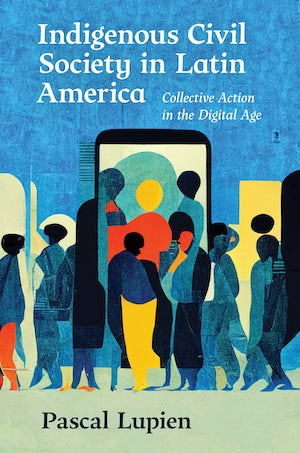Guided by community insight, Brock University students have been working to help address a range of urban housing challenges faced by Indigenous communities in Niagara.
Through the “Indigenous Housing Re-storying in Niagara” experiential education project in two Political Science courses — “Indigenous Politics in Canada” and “Issues in Local Government” — students heard from several Indigenous guest speakers and then developed policy briefs and recommendations on various local housing challenges.
The project culminated in a community event at the Niagara Regional Native Centre on April 11 that featured a traditional lunch, student policy presentations and roundtable discussions with members of Indigenous communities and the regional government.
The student project grew from discussions in the Indigenous Housing Advisory Circle (IHAC), which was formed via a Brock Indigenous Research Grant to bring together members of the Niagara Indigenous Community Advisory Board with Assistant Professors Joanne Heritz and Liam Midzain-Gobin to explore how Brock research might support Indigenous work around housing in the region.
When IHAC shared a need for policy analysis, Midzain-Gobin and Heritz saw an opportunity for experiential learning and the re-storying project was born.
“An important part of this process was getting students to try to understand and engage with the stories and experiences of our guest speakers as a form of knowledge, and then having them take what they learned and translate it into recommendations for future policy,” says Midzain-Gobin.
Third-year Political Science major Matthew Walker wrote about “Judicial System Barriers to Housing,” examining the links between incarceration and homelessness in Niagara and opportunities to break cycles of homelessness by addressing inequities. He sees the potential for great benefit in “an Indigenous-first approach to solving homelessness and injustice,” but says the whole community needs to engage with solutions.
“The biggest takeaway from this experience is that there is more work to be done,” says Walker. “The road to reconciliation is a long one, and we need all-hands on deck.”
Fourth-year Political Science and Sociology student Madison Motyka was inspired by a recent placement at Southridge Shelter to focus her policy brief on land allocation and inclusive housing policy development.
“In Niagara, Indigenous Peoples make up 2.8 per cent of the general population but almost 25 per cent of the homeless population,” she says. “I wanted to look at how we can ensure the Indigenous population is given their fair share of those builds and that the Indigenous community is consulted about how and where to build them to make sure the housing is inclusive of their culture and practices and makes people feel more at home.”
Niagara Regional Native Centre Housing Programs Director Mary Ellen Simon, who worked with Heritz, Midzain-Gobin and research assistant Sierra Kiers-Vander Veen to develop and co-ordinate the project from the beginning, says the many topics on which students completed analysis reflects an understanding that “housing and well-being includes more than just four walls and a roof.”
Heritz found the response among those who attended the event highly positive and encouraging.
“So much of the housing responsibilities in government rest with the region and there is flexibility within local government to include Indigenous Peoples in policy processes, so it was great to see that when the presentations finished, no one got up and left,” says Heritz.
Simon also observed ongoing discussion even after the day’s program had ended.
“There was definitely a lot of relationship-building and acknowledgement of Indigenous programming and Indigenous service providers and the key cultural component of what we do,” says Simon.
But, she adds, “the learning has just begun.”
“People can learn a little bit and that little bit can seem like such a lot, because the knowledge base is so low right now,” says Simon. “We need to continue to listen to Indigenous Peoples because they are the experts on what’s going on in our shelters, in our housing, in our interactions with landlords. They’re the ones who know and who will really be able to address what policies need to be changed to solve housing and homelessness issues.”
Following the presentations, the policy briefs were turned over to the members of the IHAC and their organizations:
- Fort Erie Native Friendship Centre
- Ganawageh & Ohsto:Seri Urban Homes Inc.
- Niagara Region Métis Council
- Niagara Chapter Native Women
- Niagara Regional Native Centre
The briefs will help support Indigenous-led conversations and, as Simon notes, keep the knowledge shared between Indigenous guests and Brock students in community hands.
The exchange also reflects how reciprocal partnerships can maximize community impact.
“It really is through projects like this that Brock research can have a concrete impact,” says Midzain-Gobin. “We need to make sure that a partnership is not just extractive on our end, that we build in reciprocity from the beginning and remember that in a true partnership, partners hold each other accountable.”





